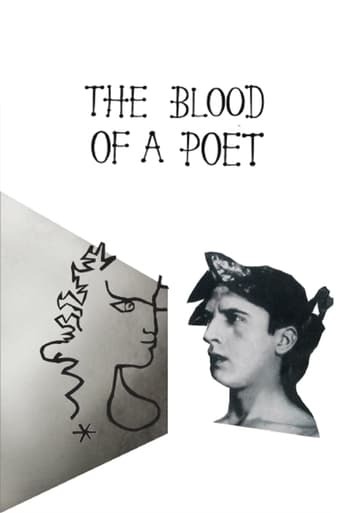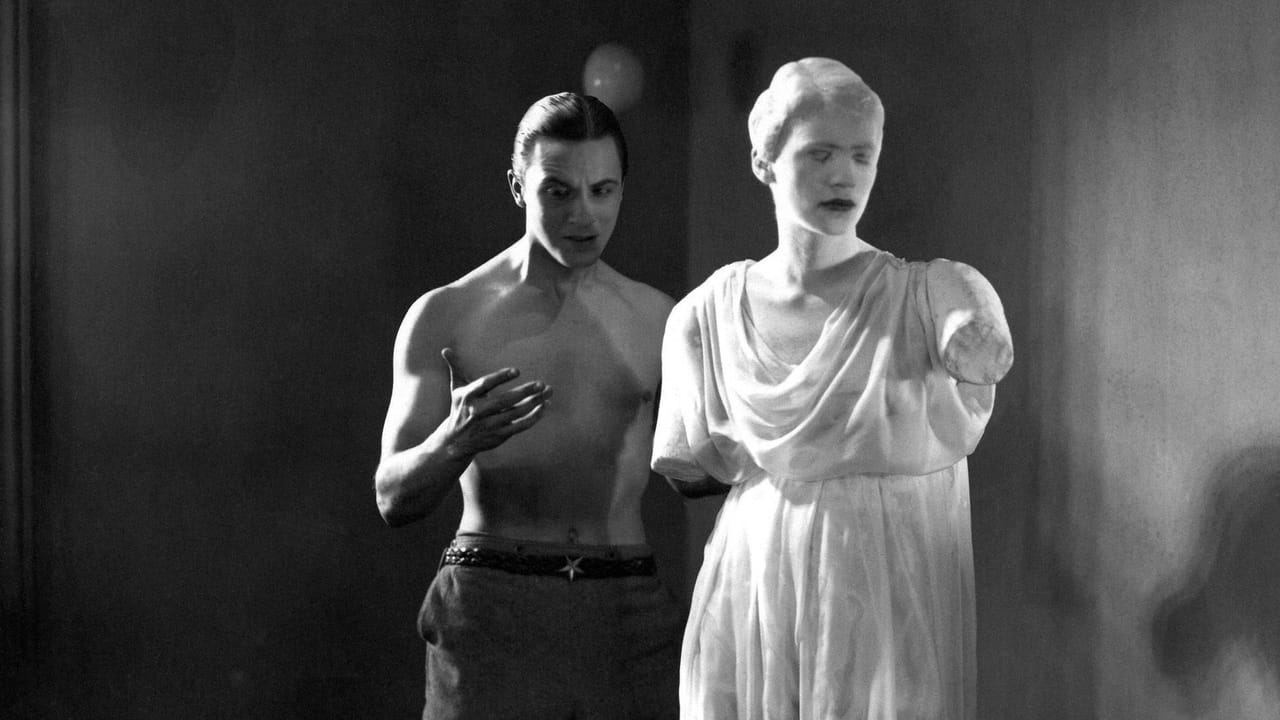Red-Barracuda
Surrealist cinema was at the height of its powers between the mid 1920's to the mid 1930's. For obvious reasons, the silent era had been particularly well suited to visually strong films. Like Luis Buñuel's L'âge d'or, The Blood of a Poet is one of the later films from this period. And both incorporate limited sound. In the case of this movie it is mainly music, with a little synchronised dialogue. It's a film that gives the impression of having an overall purpose and meaning but I have to admit, I really have no idea what it was. I found it baffling but interesting enough in a strange dream-like way. And at 50 minutes it hardly overstays its welcome. It's consistently well photographed and there are memorable sequences such as the hotel of strange rooms and the falling into a mirror moment. So, mainly, the film was of interest to me as an example of creative surrealism. But as to what it means? Ah, well, your own your own there I'm afraid
morrison-dylan-fan
Heading home a few nights ago,I got a phone call from my dad telling me that he had picked up something special which he expected I would like taking a look at.Not having a clue what to expect,I was thrilled when I realised that he had picked up about 40 different "Euro-Art Films in Widescreen on Video! (I later found out that he had picked each movie up for 50p,thanks to the seller at a pawnbroker's shop being about to bin them all,due to them being "Videos")Checking the running times of the films,I discovered that the first film by Jean Cocteau, (who,thanks to a Ridley Scott audio commentary,I found had directed a magical adaptation of Beauty and the Beast,which I had watched a number of times during my childhood) was the title with the shortest running time in the collection,that led to me deciding that my first "choice" from the collection of Euro-Art Films, (which still contained a receipt from HMV in 1994 for 17 pounds 49p!) would be Cocteau's first movie.The plot:Part 1:The Wounded Hand:Being unhappy about a painting that he has been attempting to draw,a poet is startled when the mouth of the painting starts to move.Quickly rubbing out the painting,the poet finds out that his plan to destroy the painting has gone a bit awry,when he notices that the paintings mouth has transferred to one of his hands.Horrifed,but also fascinated by this weird incident,the poet experiments with the mouth,until he ends up transferring it from his hand to the face of a statue.Part 2:Do The Walls Have Ears?:Finding the now talking statue to have a hypnotic like quality,the poet follows it orders by stepping into a hotel placed in an alternative like universe named:The Hotel of Dramatic Follies.Being horrified over the scenes that he witnesses of peoples follies,the poet shoots himself to get free from the statue's control and ends up smashing the statue into a thousand pieces.Part 3:The Snowball Fight:Since having smashed the statue to bits,a new statue has been build in the former's place,celebrating the poet that destroyed the old statue.Playing snowballs near by the statue,a young boy is killed,when a snowball containing marble hits him.Part 4:The Profanation of the Host: After dying,the boy's body lays under a table where some card sharks are playing,as his guardian angel attempts to absorb the boys soul,and the mystical power of the once broken statue seems to be getting more powerful than ever before.View on the film:For what would turn out to be the last film that he would make for 13 years,mostly related to the studio having to hold back from bringing the movie out for 2 years,due to all of the controversy that came from their 1930 Luis Bunuel and Salvador Dali collaboration film:L'age d'Or.Writer/director/narrator Jean Cocteau does a clever mix of using "the poet" struggles with his artwork, (which includes an eye-brow raising scene,of the poet laying in bed with the paintings talking mouth on his hand,that he decides to "experiment" with, by placing the hand somewhere on himself that is out of frame (my guess being a sore knee) as a foundation for the more surreal images,with Cocteau showing that no matter how much he tries,the poet is unable to be separated from his work,to the point where a statue inspired by him,takes the places of a statue that he himself created.Along with the poet's struggle with art,Cocteau makes The Hotel of Dramatic Follies a terrific place to explore,filled with opium smokers and hermaphrodite's,whilst also turning the winter wonderland of The Snowball Fight into a wickedly dark nightmare tale.Creating a feeling that the movie is building towards a wildly surreal,dream/nightmare-like ending,Cocteau sadly stumbles during the last section of the film,by not featuring the presence of Enrique Riveros as the poet,which leads to the ending feeling unfocused and completely disjointed to what had taken place in the rest of the film.
tomgillespie2002
Jean Cocteau was a French poet, painter, playwright, actor, as well as film maker, and was a huge part of the artistic community at the time. The Blood of a Poet (to use its English translation), is a very personal piece of avant-garde cinema, that reflects the ideas of the artist, and presented in a disjointed, surreal style, that is an enigma, even on viewing a second time.The Blood of a Poet has four sections that seem to have no connection at all. We begin with Enrique Rivero as "the poet", who paints a face who's mouth begins to move. After erasing it with his hand, the mouth transfers to him. After pleasuring himself with the mouthed hand, the poet transfers it to a female statue, who orders him to climb through a mirror, where he enters a new realm, one that holds doors into which the poet views some strange scenes. In another sequence a boy is killed in a snow ball fight.The Blood of a Poet was the first in what became Cocteau's Orphic Trilogy, which continued with Orphee (1950) and Le Testament d'Orphee (1960). It's slow, poetic movements through some very beautiful imagery, are in themselves interesting at times. The film is practically silent, except that there is a partial narrative (that incidentally is far too poetically esoteric that we get no indication of what is happening).The film begins with a title card that states; "Every film is a coat of arms. It must be deciphered." This seems to be its intention, to be such a piece of art that its meaning requires unravelling. Whilst this kind of riddle is often pleasurable, in this cause it seems that you may need to know much about Cocteau himself - I have only read one biography of the man. Although, his film work does improve; the other two in the Orphic trilogy are splendid, along with his incredibly poet, and dreamily beautiful adaptation La Belle et la Bete (1946).www.the-wrath-of-blog.blogspot.com
akells
This film is brilliant, but I do wish people would stop calling it a surrealist masterpiece! Cocteau was NOT a part of the surrealist movement - in fact the surrealists, especially Andre Breton, the founder of surrealism - hated him. I think it was Breton who said that Blood of a Poet was 'a bad copy of a surrealist film' (or words to that effect). And Cocteau never thought of himself as a surrealist.Obviously, the word surrealism now is applied to anything strange, weird, wacky etc. But I think you do need to be accurate when discussing art that was made at a time when surrealism was a specific, and new, movement!


 AD
AD

